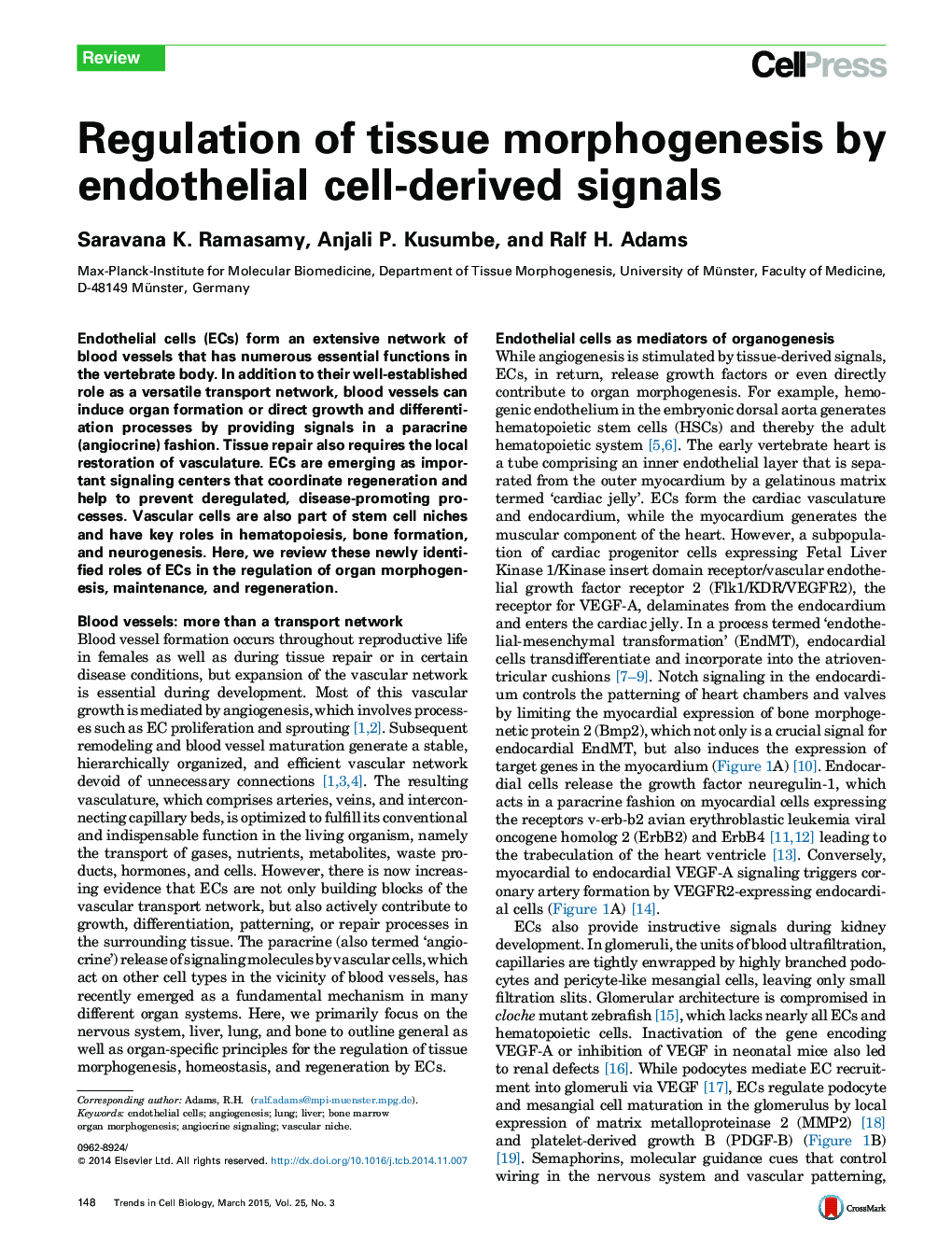| Article ID | Journal | Published Year | Pages | File Type |
|---|---|---|---|---|
| 2204337 | Trends in Cell Biology | 2015 | 10 Pages |
•Endothelial cells lining blood vessels induce organ formation and other morphogenetic processes in the embryo.•Blood vessels are also an important source of paracrine (angiocrine) signals acting on other cell types in organ regeneration.•Vascular niches and endothelial cell-derived signals generate microenvironments for stem and progenitor cells.
Endothelial cells (ECs) form an extensive network of blood vessels that has numerous essential functions in the vertebrate body. In addition to their well-established role as a versatile transport network, blood vessels can induce organ formation or direct growth and differentiation processes by providing signals in a paracrine (angiocrine) fashion. Tissue repair also requires the local restoration of vasculature. ECs are emerging as important signaling centers that coordinate regeneration and help to prevent deregulated, disease-promoting processes. Vascular cells are also part of stem cell niches and have key roles in hematopoiesis, bone formation, and neurogenesis. Here, we review these newly identified roles of ECs in the regulation of organ morphogenesis, maintenance, and regeneration.
